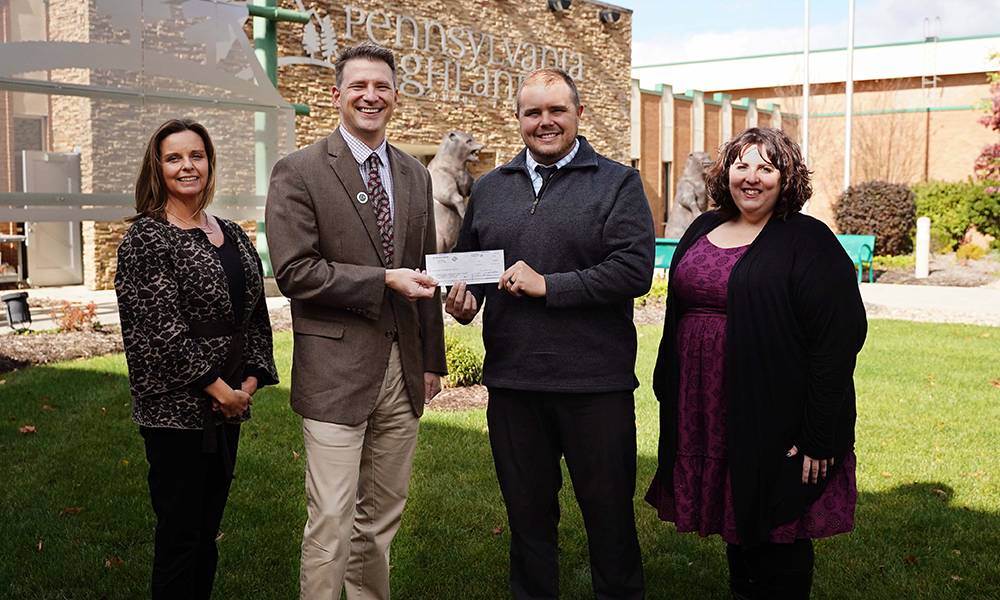Soaring Through Life
Posted November 20, 2021 at 9:37 amOne of the unique aspects of my job is my reporting structure. I report to a Board of Trustees.
Twelve of these trustees are appointed by the Cambria County Commissioners. Three additional trustees are appointed by the Board itself – one from Somerset County, Blair County, and Huntingdon County. The last is a Student Trustee who is voted onto the Board by the student body of Penn Highlands Community College.
Yes, you heard me right – I have 16 bosses, and one of them is a student.
I, of course, was not surprised that a Board of Trustees would supervise me and provide oversight to college operations when I took this job almost two years ago. I have been in higher education for 25-plus years.
I have presented many times to other boards as a faculty member or as a senior administrator. But in this job, the trustees are my direct supervisors, and so, it is different.
Initially, it was a little intimidating, trying to understand the motivations and expectations of so many different people. I made it a goal of mine to meet with every single trustee individually as soon as I could; a goal I accomplished within a few months of my initial hire.
Those meetings and my regular interactions with them during the past two years as president have convinced me to embrace the perspectives, experiences, and knowledge of the trustees – to be open-minded and to listen.
Having those 16 diverse perspectives, sometimes contradictory to my own, became comforting when I recognized that they all want the college to be successful – and hence, they want me to be successful. Having served on a few boards myself (all not-for-profit), I hope that those CEOs always felt that I supported them and the mission of the organization.
At Penn Highlands, trustees serve six-year terms – a very long commitment to any organization. But the long terms provide stability by reducing constant turnover. Recently, trustee Dr. Kathleen O’Rourke indicated that she would be leaving the board after serving two full terms (that’s 12 years to you and me).
O’Rourke spent her entire career dedicated to educating youth. In her words, “I always wanted to work with kids.”
Having earned a college degree in elementary education from Lock Haven, she taught fourth grade for several years. She then turned her attention and talents to being a school counselor after earning a master’s degree in counseling; she eventually earned a doctorate in counseling and administration. She retired, after 38 years in education, as the head of counseling in the Altoona Area School District.
In 2009, she helped start SOAR (Study, Overcome, Achieve Rewards) – a mentorship-based after-school educational program that helps youth attain college degrees – youth who have great potential but are struggling to find their way. The program helps them focus on their education and career goals so that they can be prepared to attend college (and for some, find a path out of poverty).
If the young people stick with the program, they can eventually earn $7,500 toward that degree. But their true reward is that they have built a life-long relationship with an adult mentor and friend, one that supports and cares for them.
I’ve been in the business of education for my entire professional life. And yet, when I hear stories like O’Rourke’s, I can’t help but feel gratitude.
Gratitude for her commitment to our youth. Gratitude for her clear focus to make a difference in individual kids – every kid matters. Gratitude that even after retirement she found the energy and drive to continue with educational programs that make a difference in our communities and to be a trustee on her local community college’s board.
Thank you, Dr. O’Rourke, for everything you have done for our communities and for your support of Pennsylvania Highlands Community College and its president. I will miss your insight and support.
See you at Penn Highlands.
 Written By Dr. Steve Nunez, College’s Fifth President. This monthly series appears in The Tribune-Democrat, and will allow Dr. Nunez to provide his perspective on the value of education and of a community college.
Written By Dr. Steve Nunez, College’s Fifth President. This monthly series appears in The Tribune-Democrat, and will allow Dr. Nunez to provide his perspective on the value of education and of a community college.

